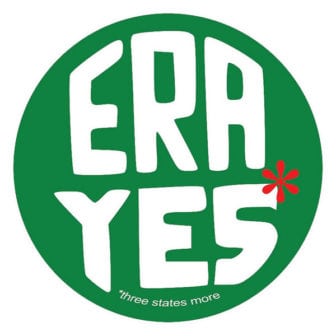
May 31, 2018; New York Times
Illinois has ratified a constitutional amendment 36 years after the stated Congressional deadline.
A bit of historical background: 52 years ago, in June of 1966, during a meeting to create an organization to “take action to bring women into full participation in the mainstream of American society now, exercising all the privileges and responsibilities thereof in truly equal partnership with men,” activist Betty Friedan wrote those words down for the women present, the statement of purpose for the new group, the National Organization of Women, Inc. (NOW). They were stepping in to continue the work of women suffragists like Alice Paul, an activist born in 1885, who turned to working on an amendment for equal rights after her role in the success of obtaining the vote for women which was ratified in August of 1920. NOW was recognized by the IRS in 1979 as a 501c4, seven years after Congress approved the Equal Rights Amendment (ERA) to the Constitution, even as the last legal steps to get it to the Constitution stalled.
The ratification was fought at the state level in the late ’70s. Notably, even some opposed it, particularly conservative activist Phyllis Schlafly, who said that women would then be drafted and have to use gender-free restrooms.
NOW still had work to do; while Congress had approved the amendment in 1972, the states had not ratified it. A seven-year deadline had been set for the required three-quarters of the states, a total of 38, to approve the amendment. The deadline was subsequently extended to 1982, but that passed, too, with only 35 states ratifying the ERA.
Sign up for our free newsletters
Subscribe to NPQ's newsletters to have our top stories delivered directly to your inbox.
By signing up, you agree to our privacy policy and terms of use, and to receive messages from NPQ and our partners.
The fight for the ERA stayed mostly quiet since the ’80s. Then, surprisingly, last year, 45 years after Congress passed the amendment, Nevada ratified it. And last week, Illinois became the 37th state to ratify the amendment, which includes the statement, “Equality of rights under the law shall not be denied or abridged by the United States or by any state on account of sex.” This has taken some new aspects since it was written in 1972, as it could pertain to LGBTQIA rights in housing, employment, credit, etc.
Some may consider the ERA moot, as states have stepped up to put their own comprehensive protections in place, but there are still strong supporters of a comprehensive amendment in the U.S. Constitution. And ratifying after the deadline might seem an exercise in futility…except for an unusual precedent that was set in the 18th century by James Madison. Back in 1789, Madison submitted 12 amendments to the new US Constitution. (The first 10 we now know as the “Bill of Rights.”) One of them, which regulates when senators and congressional representatives can vote themselves a pay raise, did not have enough state ratification support—but neither did it have a time limit to garner such support. In 1992, Michigan became the last needed ratification to approve what became the 27th Amendment, which states that pay raises for Congress do not take effect immediately. ERA supporters have concluded this precedent could help with their cause.
Women activists have been galvanized by the 2016 election and the #MeToo movement, with more and more women running for office. Some first supported the ERA in their youth.
The states that have not ratified are all considered conservative “red” states: Alabama, Arizona, Arkansas, Florida, Georgia, Louisiana, Mississippi, Missouri, North Carolina, Oklahoma, South Carolina, Utah, and Virginia. Even if one of these states were to step up—maybe to court women’s votes in the midterm elections—there is still a major roadblock in Congress. Congress could vote to recognize the ratification and void the old deadlines, or, on the flip side, they could void the whole procedure by writing a new amendment and start the ratification process all over again.
LGBTQIA groups, NOW and other nonprofits like it, and women activists and supporters will be petitioning and intensely lobbying for the passage of an amendment that has taken half a century to get here. They would like to finish what was started.—Marian Conway












